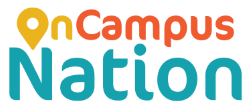
Mastering On-Campus Product Sampling: How To Sample Product at Colleges
Mastering On-Campus Product Sampling: How To Sample Product at Colleges
Engaging college students can be a daunting task, especially with the myriad of brands vying for their attention. Studies show that on-campus product sampling is an incredibly effective way to introduce your brand to this sought-after demographic.
Our comprehensive guide will walk you through everything from planning your event and choosing the right products, to executing a successful sampling campaign that resonates with students.
Ready for some practical tips? Let’s dive in!
Key Takeaways
- Choose a relevant theme for your product sampling event to resonate with college students, such as pop culture or wellness.
- Carefully select the right products and sizes for sampling to enhance consumer engagement.
- Incorporate an acquisition element, like signing up for newsletters or surveys, to build customer databases and connections.
- Maximize location and timing by identifying key events and locations on campus where students are receptive to sampling.
- Leverage student feedback and brand ambassadors to gain valuable insights and create relatability among peers.
- Utilize on – campus resources, such as student organizations and social media channels, to promote your sampling event.
- Consider collaborating with a university product sampling agency for their expertise in targeting college students.
- Integrate your on – campus sampling event with a wider marketing strategy for maximum brand exposure.
Planning Your Product Sampling Event
When planning your product sampling event on campus, it is important to choose a relevant theme that will resonate with college students. Carefully select the products and sizes you will be offering for sampling, while also including an acquisition element to encourage future purchases.
Track the success of your sampling event to gauge its effectiveness in reaching potential customers.
Choose a Relevant Theme
Picking a theme that aligns with your product and your target audience is crucial in planning your product sampling event. College students are more likely to participate in an event that resonates with them on a personal level.
Imagine organizing a pop culture-themed sampling event, equipped with accessories from popular movies or TV shows. Or consider a wellness-focused theme for health-conscious students, complete with fitness gear and healthy snacks for the sample products.
Your chosen idea should be relevant, exciting, and reflect what college students appreciate or value about your brand’s offerings. In doing so, you ensure not just their participation but also their interest in the sampled products.
Carefully Select Products and Sizes
Selecting the right products and their sizes can greatly impact your sampling event’s success. Opt for items that align with your brand’s value and portrayal, enhancing your consumer engagement in the process.
It’s not always about giving away full-sized items; sometimes, samples capture attention more easily.
The size of a sample does play a major part in its visibility at these events. Sampling sizes should be manageable, easy to distribute and consume on-the-go – after all, we’re targeting busy college students! A strategic mix of miniature versions could elevate your brand promotions during such marketing events.
Be considerate about product distribution so you don’t exhaust resources prematurely while still stirring excitement through exclusivity.
Including an Acquisition Element
Incorporating a purchase element into your product sampling event is crucial. This acquisition aspect can take many forms, such as encouraging students to sign up for email newsletters, fill out a survey or follow your brand on social media in exchange for the free sample.
College students are usually open to providing personal details in return for free samples. This practice not only gets your products in the hands of potential customers but also helps build valuable customer databases and connections that boost future marketing efforts.
With this strategy, you present an enticing reason for young adults to share their contact information and then have an opportunity to turn these leads into loyal customers through further engagement strategies like personalized emails or special discounts.
Tracking Success
Tracking the success of your product sampling event is crucial to evaluating its effectiveness. By monitoring and analyzing key metrics, you can determine if your campaign is generating positive results.
Utilize digital platforms like social media and online surveys to gather feedback from students and measure their level of engagement with your brand. Calculate important factors such as sample-to-purchase ratio, customer retention, and return on investment (ROI) to assess the overall impact of your sampling efforts.
This data will provide valuable insights that can help refine future campaigns and ensure maximum success in reaching college students.
Successful Execution of a Sampling Event on Campus

Maximizing location and timing, leveraging student feedback and brand ambassadors, utilizing on-campus resources, and working with a university product sampling agency are all crucial elements for a successful product sampling event on campus.
Learn more about these strategies to engage college consumers effectively.
Maximizing Location and Timing
Timing and location play a crucial role in the success of on-campus product sampling campaigns. It is important to gather data and conduct research to determine the optimal timing for sampling events on each unique campus.
By identifying key events and locations where students are more likely to be receptive, brands can tailor their message to engage the intended audience effectively. Additionally, ensuring that students feel comfortable receiving samples is essential for maximizing success in on-campus sampling.
By approaching product sampling with a fresh perspective and taking into account both timing and location, brands can make the most out of their on-campus sampling efforts.
Consider Student Feedback and Brand Ambassadors
Brands looking to successfully execute a sampling event on campus should take into account student feedback and utilize brand ambassadors. By actively seeking input from college students, brands can gain valuable insights into their preferences and adjust their sampling strategies accordingly.
In addition, brand ambassadors who are students themselves can help create a sense of relatability and trust among their peers. With a well-planned script that aligns with the goals of the sampling event, these ambassadors can effectively promote products while engaging with potential customers on a personal level.
Leveraging student feedback and brand ambassadors can significantly enhance the success of product sampling campaigns on college campuses.
Utilize On-Campus Resources
Make the most of your sampling event on campus by utilizing the resources available to you. Here are some ways to optimize your sampling strategy:
- Collaborate with student organizations and clubs to host your sampling event at their events or meetings.
- Partner with on – campus dining services to distribute samples during meal times or at popular food locations.
- Use university social media channels and email newsletters to promote your sampling event to a wider student audience.
- Tap into the expertise of professors or academic departments that align with your product, and consider incorporating educational elements into your sampling experience.
- Take advantage of existing campus events such as orientation week, sporting events, or student fairs to reach a larger audience.
Working With a University Product Sampling Agency
Collaborating with a university product sampling agency can greatly enhance the success of your sampling event on campus. These agencies specialize in executing sampling programs specifically designed to target college students, bringing their expertise and knowledge to the table.
By engaging their services, you can ensure that your sampling campaign is well-executed, maximizing its impact and reach among the student population. With a product sampling agency by your side, you can confidently navigate the complexities of university events and effectively connect with your desired audience.
Integrating With a Wider Marketing Strategy
Integrating your on-campus product sampling event with a wider marketing strategy is crucial for maximizing brand exposure and generating long-term impact. By aligning your sampling campaign with other promotional events and initiatives, you can create a cohesive brand message that resonates with your target audience.
This integration allows for strategic planning and optimization of resources, ensuring that the right products are sampled to the right people at the right time. Additionally, integrating with a wider marketing strategy opens up opportunities to leverage brand ambassadors, utilize on-campus resources, and track success metrics more effectively.
By incorporating your sampling event into a larger marketing plan, you can create a comprehensive brand experience that drives awareness, interest, and consideration among college students.
Choosing the Right Products for University Sampling

Sweet and savory treats, beauty and skincare products, and convenience foods are some of the top choices for university sampling. Find out why these products are popular among college students in our blog post.
Read more to discover how to effectively choose the right products for your on-campus sampling campaign!
Sweet and Savory Treats
College students are notorious for their snacking habits, and when it comes to product sampling on campus, sweet and savory treats are always a hit. With about 70% of college students consuming 2-3 snacks per day, it’s clear that snacks play an important role in their lives.
When planning your sampling event at colleges, be sure to include popular snack choices among college students. Whether it’s irresistible chocolate bars or mouthwatering chips, these impulse snack purchases can leave a lasting impact on young adults.
Additionally, consider offering healthy snack alternatives for university students who may be looking for nutritious options to fuel their busy schedules. By providing the right mix of sweet and savory treats during your sampling event on campus, you can appeal to this snacking demographic and create a memorable experience that will keep your brand at the forefront of their minds as they reach for their next bite.
Beauty and Skincare Products
The beauty and skincare industry is well-suited for university sampling events. Distributing sample size products allows students to try out different brands and varieties without committing to a full-size purchase.
This interactive relationship between consumers and brands helps students discover new products that they may not have otherwise considered. Moreover, with health concerns surrounding traditional in-store beauty product sampling testers, there has been a shift in the industry’s reliance on product sampling.
By bringing these samples directly to campus, brands can engage with college students in a more convenient and safe manner while still showcasing their products effectively.
Convenience Foods
Convenience foods are a crucial aspect to consider when choosing the right products for university sampling. These ready-to-eat meals, quick meals, prepackaged snacks, grab-and-go options, and easy-to-prepare foods cater to the busy lifestyle of college students.
They provide convenient solutions for on-the-go meals or late-night study sessions. Microwavable meals, instant noodles, frozen dinners, and snack bars are popular choices among students due to their convenience and ease of consumption.
Additionally, convenience store foods offer a wide variety of options that can appeal to different tastes and preferences. By incorporating these convenience foods into product sampling events on campus, brands can effectively reach their target audience and showcase the practicality of their products.
Convenience Foods play an essential role in product sampling at universities because they meet the fast-paced needs of college students’ lives. Whether it’s satisfying hunger cravings between classes or finding a quick meal option during late-night study sessions, convenience foods like ready-to-eat meals and prepackaged snacks offer a hassle-free solution.
These grab-and-go options allow students to save time while still enjoying delicious flavors without compromising quality or taste. Frozen dinners and microwavable meals are also popular choices as they require minimal preparation but deliver satisfying results in minutes.
Cost of a Sampling Program on Campus
Organizing a sampling program on campus involves various logistical considerations, including the cost. From product procurement to staff wages and transportation expenses, it’s important to factor in these costs when budgeting for a successful sampling event.
Logistics to Consider
Considering the logistics is crucial when planning your product sampling event on campus. Here are some important factors to keep in mind:
- Budgeting: Take into account the costs of producing the samples, transportation expenses, staffing fees, and any permits or fees required.
- Target audience: Understand who your audience is and tailor your logistics accordingly. Consider their preferences, habits, and interests.
- Type of product: Different products have different requirements for storage, handling, and distribution. Ensure that you have the necessary resources in place.
- Transportation: Plan how you will transport your samples to the campus location safely and efficiently.
- Staffing: Determine how many staff members you will need to effectively manage the sampling event and interact with students.
- Permits: Check if there are any permits or approvals required for conducting a sampling event on campus.
- Logistics: Pay attention to details such as setup and breakdown of booths, storage of extra samples, trash disposal, and coordination with campus facilities.
Case Study: Successful Product Sampling at College Campuses
Discover how brands like Starburst and GoodnessKNOWS achieved success through their product sampling campaigns on college campuses, and learn valuable lessons and best practices for your own sampling events.
Don’t miss out on the impact that product sampling can have on college students!
Starburst Gummibursts Campaign
The Starburst Gummibursts campaign serves as a prime example of successful product sampling at college campuses. Evolve, a marketing agency, was responsible for organizing a nationwide tour that focused on engaging college students and distributing samples of the candy.
With strategic planning and execution, the campaign effectively reached its target audience and generated buzz among college students about the new product. Through this case study, we can highlight the impact that well-executed product sampling can have in promoting brands to college students and driving consumer engagement.
GoodnessKNOWS Collaboration
GoodnessKNOWS collaborated with college campuses to conduct successful product sampling events. As part of their strategy, they implemented intercept surveys after each sampling event to gather feedback from college students and assess their satisfaction with the products.
These surveys provided GoodnessKNOWS with valuable insights that helped them make informed decisions and improve their marketing strategies. By engaging directly with the target audience and collecting actionable data, the GoodnessKNOWS collaboration demonstrated the importance of consumer feedback in shaping a successful product sampling campaign on college campuses.
Lessons Learned and Best Practices
Approach product sampling strategically to maximize success on college campuses. Consider the following lessons learned and best practices:
- Target the right audience: Identify the demographics and interests of students on campus to ensure your product aligns with their needs and preferences.
- Choose an engaging theme: Create a unique and memorable experience for students by incorporating a relevant theme that resonates with them.
- Plan logistics carefully: Coordinate with campus authorities to secure optimal locations and timing for your sampling event.
- Utilize student feedback: Gather input from students before and after the event to understand their preferences, opinions, and suggestions for improvement.
- Train brand ambassadors: Recruit knowledgeable and enthusiastic individuals to represent your brand on campus, educating students about your product and creating positive interactions.
- Integrate with wider marketing efforts: Align your sampling event with other marketing initiatives to amplify its impact and reach a larger audience.
- Track success metrics: Implement mechanisms to measure the effectiveness of your sampling campaign, such as tracking sales, social media engagement, or survey responses.
- Adapt based on results: Analyze the data collected during your sampling event and adjust future strategies accordingly, focusing on what worked well and what can be improved.
The impact of product sampling on college students
Product sampling has a significant impact on college students. When done successfully, it can lead to increased brand awareness, higher product trial rates, and ultimately drive sales.
College students are often receptive to free samples and promotional giveaways, making them an ideal target audience for sampling campaigns. By strategically planning and executing sampling events on college campuses, brands have the opportunity to engage with students directly, creating positive experiences that can influence their purchasing decisions.
Additionally, product sampling provides valuable market research insights by gathering feedback from college students and measuring their responses to different products. Overall, product sampling is a powerful marketing strategy that can effectively capture the attention of college students and drive consumer behavior in favor of the brand or product being sampled.
Conclusion
In conclusion, mastering the art of on-campus product sampling is crucial for brands looking to engage college students and turn them into potential customers. By carefully planning your sampling event, maximizing location and timing, and incorporating student feedback, you can create a successful sampling campaign that resonates with this target audience.
Whether you choose sweet treats, beauty products, or convenience foods as your samples, be sure to track success metrics and integrate your sampling efforts into a wider marketing strategy.
With these strategies in place, you’ll be well-equipped to sample products at colleges effectively.
FAQs
1. Can anyone sample their product at colleges?
Yes, anyone can sample their product at colleges as long as they follow the rules and regulations set by the college administration.
2. How do I get permission to sample my product on a college campus?
To sample your product on a college campus, you will need to reach out to the college’s administration or marketing department and obtain permission or partnership opportunities.
3. What are some effective strategies for sampling products at colleges?
Some effective strategies for sampling products at colleges include setting up eye-catching booths, offering free samples or discounts, engaging with students through interactive activities, and promoting your brand through social media channels.
4. How can I make my product sampling event successful?
To make your product sampling event successful, it is important to have clear branding and messaging, create an appealing display setup, provide exceptional customer service, and gather feedback from students to improve future events.
5. Are there any restrictions on what types of products can be sampled on college campuses?
Each college may have its own policies regarding the types of products that can be sampled on their campuses. It is advisable to check with the college administration beforehand to ensure compliance with these guidelines.

Share
Facebook
X
LinkedIn
Telegram
Tumblr
WhatsApp
VK
Mail